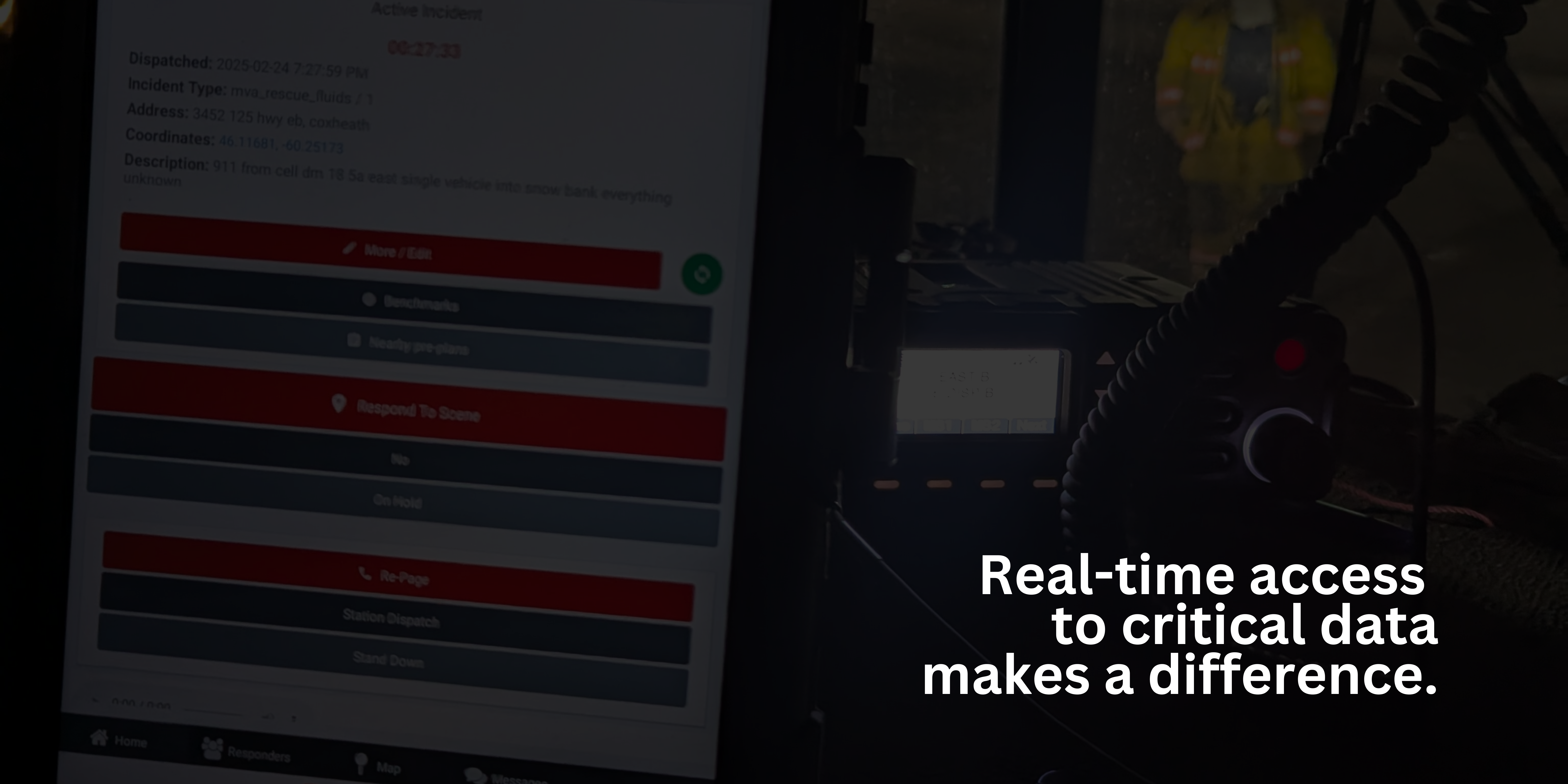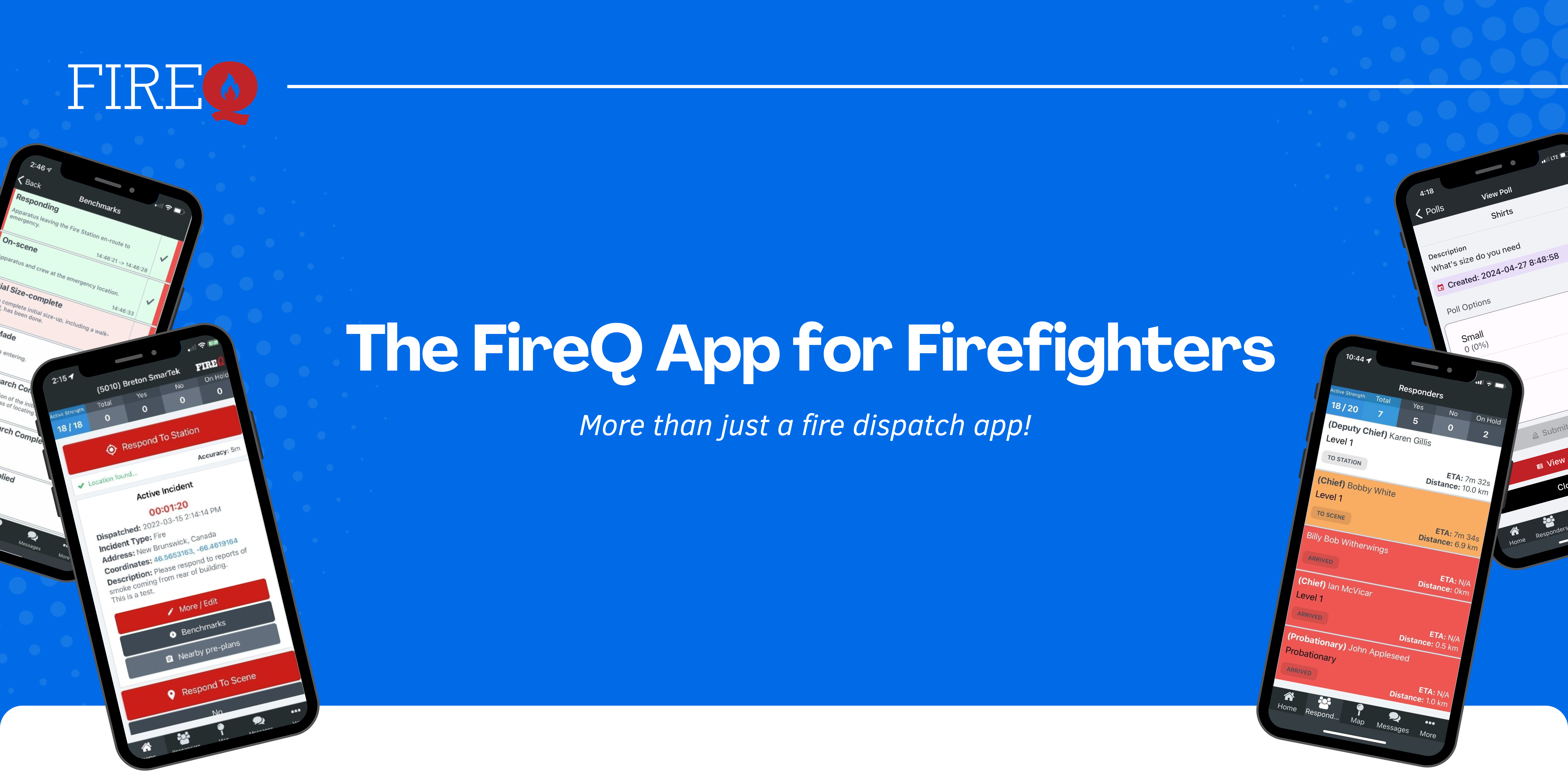The administrative burden of the fire department is growing and selecting fire department management software can be daunting. There are so many options to choose from it can be difficult to make the right decision. While this may be true, there are things you can do to make it easier.
Firefighters and the Paperwork Burden
If you ask a firefighter why he or she joined the fire department, you might hear answers like:
- I want to help people.
- I want to serve my community.
- I like fighting fire.
An answer you would never hear is “I like paperwork and writing reports” because no firefighter – anywhere, anytime, ever – joins the fire department to do paperwork. Yet, there is an growing number of administrative challenges for firefighters.
Standards and Reporting Requirements
Unquestionably, changing reporting requirements and evolving operation standards are adding to the burden of managing the fire department. In this constantly changing environment, fire department software is a necessity – an intimidating and exciting necessity.
NFPA Standard 1221, for example, provides details on what records are needed by fire departments. They include training, operational, incident, equipment, and maintenance records. Another standard, NFPA 1620, reminds us that pre-incident plans provide firefighters with information at the time of dispatch, information firefighter may not otherwise have until they arrive on scene.
In May 1953, the first NFPA committee struck to review fire casualties released a statement that said, “The absence of accurate and detailed statistics on fire casualties has hindered attempts by educational and other means to reduce the number of deaths and injuries from fire”. This is a powerful reminder why good records are needed and NFPA 901 provides guidance on what statistics should be captured to ensure those good records. Moreover, in many jurisdictions there are legislative requirements that fire department must meet. These could include insurance and workers compensation obligations, as well as legislated incident reporting requirements.
Why Fire Department Management Software is Important
The burden of fire department management is growing, particularly for community-based fire departments. At the same time, these departments are often staffed by volunteers and lack the budget and knowledge-base to use many of the available records management software systems. Many fire departments are using multiple software subscriptions just to get by. They use one to manage alerts from dispatch while using another to give firefighters a way to respond. In many cases, they use something else again to manage fire departments records and reporting (if they can afford it). Similarly, even more are using a paper-based system that is becoming more unmanageable.
Regardless of size and budget, fire departments must track and manage personnel, equipment, training, maintenance, and incident reporting. The days of training sign-in sheets, photo-copied inventory lists, and burgeoning file cabinets are over; and good record keeping is quickly becoming one of the biggest challenges faced by fire departments. In spite of these challenges, there are things that you can do to select the right fire department software.
The Role of the Fire Department and the Data it Generates
Firefighters, and the departments in which they serve, do a LOT. They fight fires; cut people out of mangled; perform high-angle and ice-water rescues; and, respond to medical emergencies. Perhaps, most importantly, they train rigorously to do all that safely.
In addition, they host bingo games, raffles, 50/50 draws, community barbeques, and anything else that will help them to keep the doors of their fire department open. At the same time. these community volunteers also perform community outreach activities that include fire safety and prevention and they stand ready in every extreme weather event, every natural disaster. In these ways, firefighters ensure community fire departments are always operating at the highest levels of readiness and their work keeps communities safe and house insurance as low as possible.
They further support their communities by flooding local rinks, hosting fire department tours, and supporting community causes. Tracking this diverse data can be challenging but it is critical to understanding how the fire department fills all these roles.
The Value of the Fire Department Calculated
Consider, for example, a small community fire department in eastern Canada. It is a small department with fewer than 20 members, protecting a community of approximately 3000 people. In 2020, this department responded to more than 100 incidents, volunteering more than 3500 man-hours in the process. These firefighters also dedicated more than 1000 hours of training time and almost 500 hours to fundraising. These contributions of are significant so tracking the time and activities of firefighters is critical to understand the true value of the service they provide.
What to Look for in Fire Department Software
Because fire departments do a lot, fire department software must also do a lot. Fire department software should be affordable, intuitive, and functional. To that end fire department software, at a minimum, should include:
- Incident tracking and reporting.
- Training reporting and management.
- Equipment inventories.
- Maintenance logs.
- Personnel management.
- Pre-incident planning.
- Mobile access.
- Interoperability.
Things to Consider Before Buying Fire Department Software
The search for a records management system can be daunting and there are many from which to choose. At the same time, features and cost can vary dramatically. To ensure that the records management system meets the needs of the fire department, conduct a department needs assessment and create a list of what data the department wants and needs to track. What records need to be managed? Who needs to access those records? Can the records be accessed and managed from anywhere? How and where is the data stored? Is it easy to use? Is the system secure? Does it meet privacy legislation standards? Can data be exported the end-user?
Identify people within the fire department who are knowledgeable about fire department operations, as well as people who are familiar with computers and software. Tapping into the diverse skills sets that exist within any fire department ensures that the fire department software is a team tool.
Create a budget and timeline for implementation. Ideally, a free trial of the records management solution would allow fire departments to properly evaluate the solution.
The Benefits of the Right Fire Department Software
Fire departments that use an effective records management system enjoy less paperwork and greater productivity. The members of the fire department are more efficient, freeing more time for training, skills improvement, and operational readiness. Decisions become data-driven and department preparedness increases. The right records management system helps fire departments to improve efficiency, manage risk, and supports accountability.


